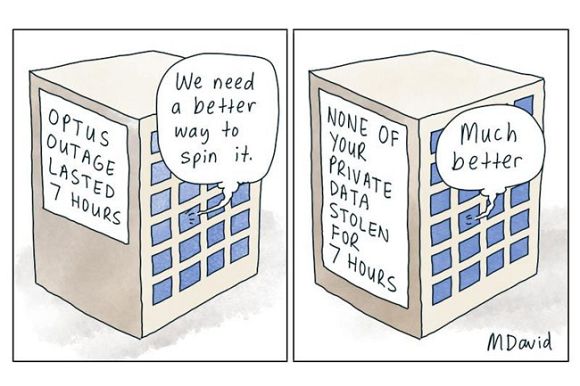The Federal Government’s new emergency call reforms mark progress, but Australia still lacks a national plan to secure its digital infrastructure. Paul Budde reports.
YESTERDAY’S MEETING in Canberra between Communications Minister Anika Wells and the CEOs of Telstra, Optus and TPG marks an important moment in Australia’s long struggle to secure its most critical communications infrastructure.
The three chief executives were called in to brief the Minister on their readiness to meet new triple zero obligations taking effect on 1 November, including stricter reporting, real-time information sharing with emergency services and automatic network “camping” when one carrier fails.
The Government also announced it will introduce the Telecommunications Legislation Amendment (Triple Zero Custodian and Emergency Calling Powers) Bill 2025, establishing a new statutory Triple Zero Custodian within the Department of Infrastructure and Communications.
This custodian will be responsible for the end-to-end functioning of Australia’s emergency call system, with powers to direct or request regulatory action by the Australian Communications and Media Authority (ACMA). In other words, if the custodian is not satisfied with how telcos manage outages or prepare for future disruptions, it can intervene.
That’s a significant improvement on the fragmented accountability that hampered coordination during previous outages.
While the custodian doesn’t yet go as far as I have advocated – for example, in moving triple zero management entirely out of telco hands and into an independent, integrated national system – this is still a meaningful step in the right direction. It creates a clear line of authority, allows for deeper technical scrutiny and, most importantly, recognises that telecommunications infrastructure is too essential to be left solely to commercial interests.
Beyond crisis management
However, this must be seen as only a beginning. The custodian will focus on emergency services, but the issues exposed by last month’s Optus outage go well beyond triple zero. What happened at Optus was not simply a failure of one company; it revealed a deeper structural weakness in Australia’s digital infrastructure — one that demands a national response.
For years, others and I have warned that the business model of telecommunications is under strain. Most profits in the digital economy now flow to American technology giants – the companies providing services over the networks – while the telcos are left to fund, operate and maintain the physical and digital infrastructure beneath it.
The old assets of cables and towers are being replaced by software-based systems, data centres and AI-driven networks — all of which require constant reinvestment and upgrading.
Yet the sector’s financial margins are shrinking, and so too is its capacity to invest. The result is an underfunded, overstretched system that lacks redundancy and resilience. The tragic consequences of that became painfully clear when hundreds of emergency calls failed to connect during the Optus outage.
A national plan must follow
That is why we need to go further than emergency service reform. We need a national plan for digital infrastructure — a comprehensive, independent assessment of the systems that keep our country running.
Telstra CEO Vicki Brady recently called for such a national plan. She was right to do so, but it must extend beyond the corporate sphere. A true national plan must include the public interest, ensuring that Australia has the resilient, modern and affordable digital infrastructure required for a thriving society and economy.
The custodian could play an important role in this. If empowered to investigate more broadly, it could become the technical anchor for that national plan — auditing the resilience of fixed, mobile and IT-based systems; assessing investment adequacy; and advising government on where the gaps lie.
At minimum, this plan should address:
- the current condition and resilience of our telecommunications networks;
- whether investment levels are sufficient to sustain modern infrastructure over the next decade;
- the adequacy of redundancy and failover systems across all providers;
- the effectiveness of emergency interoperability, including roaming and data sharing; and
- how government oversight can ensure that public safety is never compromised by commercial pressures.
From reactive regulation to proactive resilience
If yesterday’s meeting and the new legislation lead to stronger oversight, transparent reporting and a culture of accountability, it will be progress. But the real challenge is to move from reactive regulation – fixing failures after they occur – to proactive resilience planning.
Telecommunications is not just another industry. It is the nervous system of our nation. We cannot run emergency services, hospitals, banks, transport networks or government without it. The events of the past year have shown what happens when we treat that infrastructure as a private utility instead of a public lifeline.
The Minister’s actions today suggest that the lesson has finally been absorbed. The creation of a triple zero custodian is a solid first step. The next must be a genuine national infrastructure plan — one that guarantees Australia’s digital backbone will remain strong, secure and future-ready, no matter which company happens to be running the cables.
Paul Budde is an IA columnist and managing director of independent telecommunications research and consultancy Paul Budde Consulting. You can follow Paul on Twitter @PaulBudde.
 This work is licensed under a Creative Commons Attribution-NonCommercial-NoDerivs 3.0 Australia License
This work is licensed under a Creative Commons Attribution-NonCommercial-NoDerivs 3.0 Australia License
Support independent journalism Subscribe to IA.














